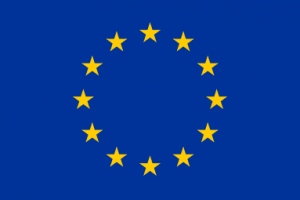"...summoning up your memories one by one, your wolf will have become another wolf, your sister a different sister, your battle other battles, on your return from Euphemia,
the city where memory is traded at every solstice and every equinox." - Italo Calvino, Invisible Cities.
When we designed the proposal and planned a study group on interdisciplinarity - FEDORA first blind spot - we imagined ourselves in a two-day long residential workshop in Bertinoro. It is a beautiful location in the hills, not far from Bologna, called "the Balcony of Romagna" for its breathtaking view of the sea and the mountain. We imagined ourselves, a group of people with very different backgrounds, to share words, knowledge, pieces of experience in the castle that dominates the town and hosts the University Residential Centre and the Interreligious Museum. We were sure that the authentic restaurants, famous for their "piadina and Sangiovese" (a typical bread and red wine), would have facilitated our interactions.
The idea was to create a trading zone where interdisciplinarity was not the theme of academic discussions but an actual practice, a live learning mechanism that we had to activate to know each other and share methods and languages to reason on knowledge generation and organisation. A facilitator would have been in charge of analysing our dynamics and languages and representing them visually.
Instead, contingencies like a pandemic made future diverge from plans, and we found ourselves organising the study group on Zoom and searching for other ways to set up a trading zone.
In preparation for the online meeting, we shared metaphors, images, stories, experiences…
Despite the insufficient logistic context, an incredibly rich bunch of ideas emerged. Framed by the papers of Akkerman and Bakker on boundary crossing and objects, and by the Family Resemblance Approach, developed by Sibel Erduran, Zoubeida R. Dagher and colleagues, we have been inspired by the Gaelic word "meitheal", the performances of Gandini Juggling, and by The city of Euphemia by Calvino (The invisible cities).
In this virtual context, we explored the multi-dimensional roles of disciplines, the barriers they create, and their pros in structuring reasoning and mediating the interaction. We then challenged ourselves by wondering what attitudes and skills are needed to accept the risk of crossing boundaries and have an authentic experience as boundary people.
A great resonance in the group emerged around the idea that interdisciplinarity in STEM education implies not only managing tensions between belonging-nonbelonging, defining-negotiating meaning, going in-out a comfort zone, zooming in-zooming out (from details to big pictures and vice versa). It also entails managing a particular kind of equilibrium that we called "between sense-making skills (systems, critical, analytical thinking) and strange-making skills (creative, imaginative, anticipative thinking)."
What forms of epistemic practices and knowledge organisation, what facilitation scaffolding is needed to educate pupils, teachers, educators and ourselves to manage such an equilibrium?
These questions are our challenges for the next steps of our researches and discussions that, for sure, we will continue in newer and newer modalities and in a continuous search for inspiring logistic contexts.
